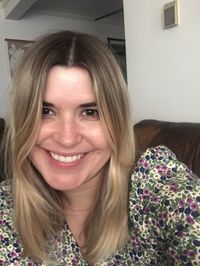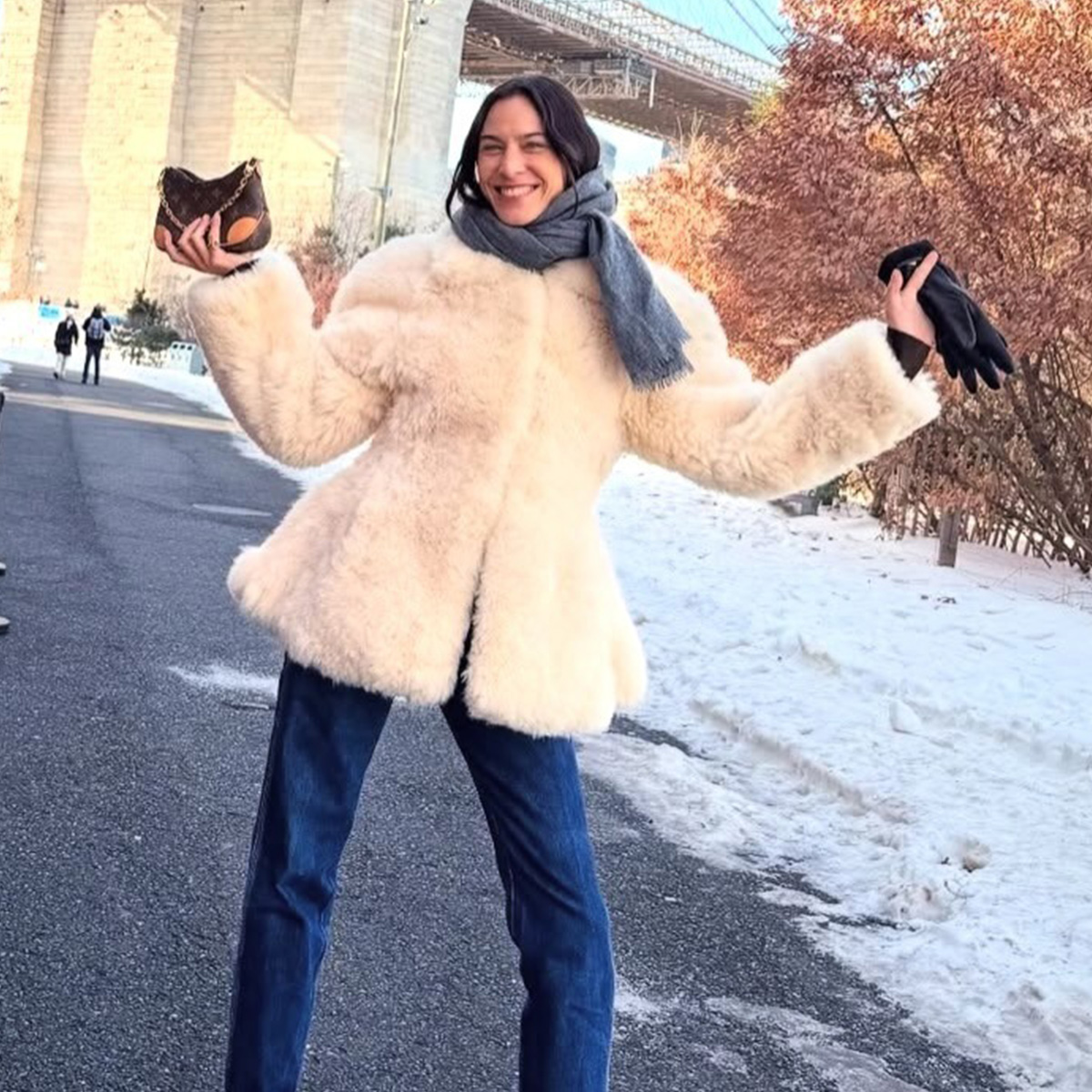Ziwe Really "Freaked It" With Her Hilarious First Book, Black Friend: Essays

Editor's Note: You can listen to the full interview with Ziwe on Who What Wear With Hillary Kerr.
code:
If it seems like comedian, writer, and talk show host Ziwe is everywhere you look these days, your brain is not playing tricks on you. She is, in fact, everywhere: on your screens and NYC billboards for her appearance in Victoria Secret's feature-length documentary The Tour '23, chatting it up with Kris Jenner front row at the Loewe show during Paris Fashion Week, sipping espresso martinis with Emily Ratajkowski at the US Open Tennis Championships men's final, talking shop on Dua Lipa's podcast, and now on bookshelves nationwide. Today marks the release of her book Black Friend: Essays. A collection of personal anecdotes and pop culture commentary, the book is a sharp and hilarious read, further proving Ziwe is one of the funniest voices of our generation.
Ziwe, whose full name is Ziwerekoru Fumudoh, has made a name for herself for many, many things. In 2017, she created the YouTube—and later Instagram Live—comedy show Baited With Ziwe, in which she famously interviewed non-Black friends and notable names using her distinct direct questioning to bait them into making cringeworthy racial faux pas. She has written for a number of TV shows over the years—including The Rundown With Robin Thede, Desus & Mero, and the Apple TV+ series Dickinson—and co-hosted the podcast Hysteria from Crooked Media. In 2020, she landed her own eponymous variety show on Showtime. But Black Friend: Essays is certainly her most vulnerable and revealing work yet.
For our latest Spotlight feature, Ziwe joined Hillary Kerr in conversation to talk about stepping out of her comfort zone to write Black Friend: Essays, leveling up her WikiFeet score, and the joy of reading encyclopedias.
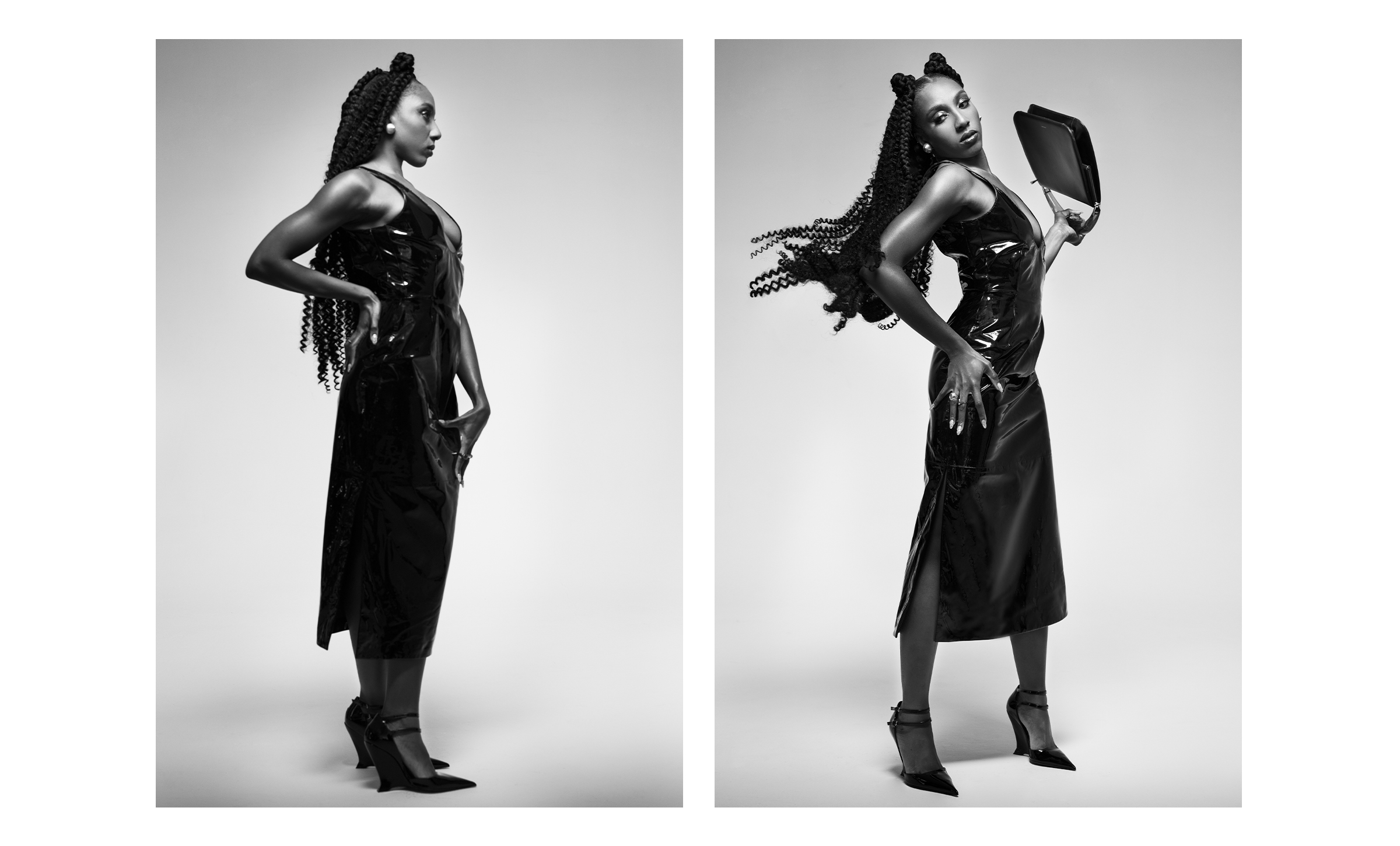
On a personal note, it is such a joy to watch your career explode in such an incredible way. I am thrilled to talk to you about your insightful, vulnerable, charmingly educational book that is coming called Black Friend: Essays. So what are you most excited about in anticipation of this release?
I'm going on a book tour domestically, and I'm most excited about interacting with the readers, honestly. I came up doing live comedy in Brooklyn, and because of the pandemic, I haven't been in live mode. So I'm excited to get back to my roots and meet a lot of people at book signings and the like.
That was not necessarily the thing I was anticipating you saying. I would not have imagined that it's interacting with people, probably because I don't love interacting with people.
What were you anticipating? I'm an introverted person, so I feel you on that. It takes a lot of energy for me to walk myself out of my door, but also, finishing a book was probably one of the hardest things I've ever done. TBD on if I'll ever do it again. It was incredibly difficult because I am a writer. I read the audiobook last weekend, and I'm like, "Oh, I should have edited this. Is it too late to change this mistake?" Having that be released from my list of things to do, I feel really free, and the only thing left is to interact with readers and the audience, which is much more fun than sitting alone and spiraling about my different writing choices.
Okay, I get that. So talk to me a little bit about the concept for the book. I'm so interested if it changed over time, because sometimes we sit down and think a project is one thing, and then it becomes something else.
It definitely evolved through the process of writing because it took me a very long time to finish it. It took me three years to write this book. There are some essays, like "WikiFeet," that were there in the inception of the book but expanded over the course of time. Initially, that was just a one-page funny essay that I kept building out and building out because I became obsessed with the Britney Spears scandal. I also could relate to her because I was on WikiFeet, and I started performing that bit live. So it grew into something deeply personal against my will. I don't like to share anything about myself. I'm kind of shy in that space. That's why I perform with a character. But I found that in all the books I could really connect to, especially essay books, they all start with the self. It would have been a disservice to my audience if I refused to share one thing about myself. So those tidbits were added over the course of three years begrudgingly. It was a muscle I had to exercise for sure.
So tell me about that process over three years. How did you work? Did you start with saying, "This is what I want to create, and then here's a process to it." Or was it more organic, where you just wrote when the feeling hit?
To be a professional writer, if you're not able to write, you're at least able to edit. You can't really wait for the feeling to hit you because it will never—that wind ain't blowing. I've been writing all my life, so I've had all of these stories that have been orbiting around me, and I put them down in words. I would read through them and wonder, What is the point of the story? Why am I sharing this? Then I would connect it to theory or to pop culture or vice versa. I would start with theory and pop culture and then see if I can make it about myself. That was my process. There's this one essay called "Airbnb," which is when I was almost abducted and murdered in upstate New York. That was literally one day I was working on my book, and I had writer's block, so I decided to go on a walk. I had this man confront me in the woods, and it became this really Jordan Peele–esque essay. That was something that I found organically. I respond to circumstances. That's a part of being an artist.
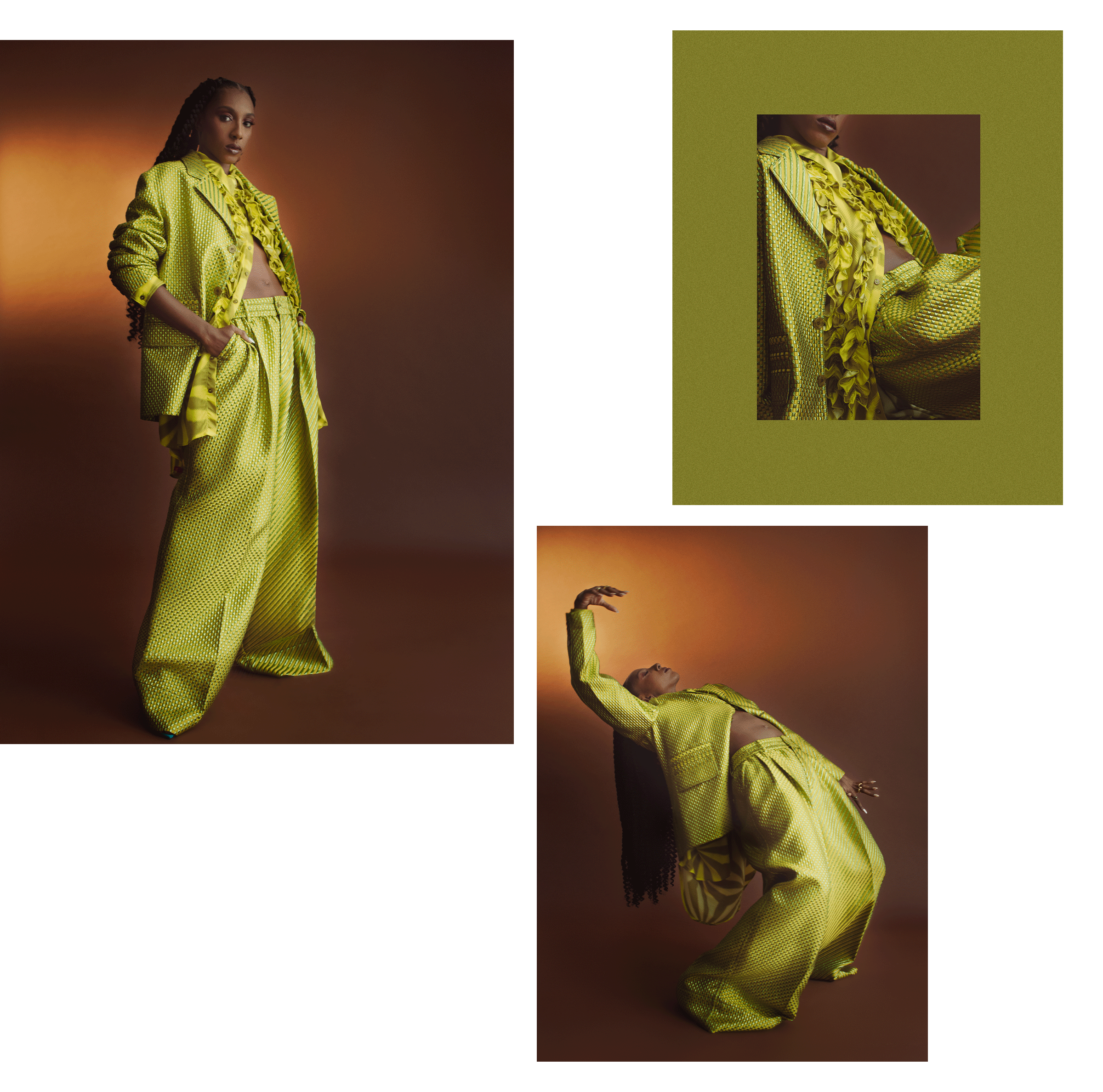
Talk to me a little bit about your thought process when structuring the book, giving the essays an order. I often think of it as the playlist curation of it all. How do you know when the flow and the order is right?
That's a great question. I come from a comedic space, so I think that funny is the most important thing. You can have whatever medicine, but you've got to have a little sugar. Having some build of tension and then release of tension through comedy was really a priority in how I ordered my book. So you get hard comedy like "Nobody Knows My Name," which is about me being at a WNBA game on the jumbotron and them mistaking me for Sam Jay. And then you'll get "WikiFeet," which is about how my WikiFeet rating is okay, which is humiliating. And then you'll have an essay on discomfort and my relationship with my mother and women and gender. It's really just about catching the vibes.
What has the process been like for you as people outside inner and trusted circles started reading it? Does it feel amazing? Does it feel unusual?
Both. As an artist, you have to do the best you can and make something that you are proud of and then release that bird into the world and know that it could be shot or eaten by a hawk or fly the wrong way into the middle of the ocean to that trash island. But that's part of the process of being an artist. I can't control how people feel.
Was there one part or specific essay that was the most difficult to write, or were they all equally painful and joyful at the same time?
Both because some of the essays are amalgamations of different essays. In the "Nobody Knows My Name" essay, there's a bit about traveling and how people would mistake me for Michelle Obama and Rihanna. That was just a travel essay that was short that I could fit thematically into the concept of "Nobody Knows My Name," which is like identity. So I weave that in. But that essay was really quick to write once I understood what I was trying to do with it versus "Discomfort," [which] had taken on several different iterations and at one point was overlapping with "WikiFeet," but then I realized they were separate entities. So it was about finding all the stories in the Ziwe universe, the cinematic universe, and then it was about grouping them thematically. That was difficult, but that was what made it click. The footnotes are these manic episodes where I'm like, "Speaking of, let's talk about this historical fact from 1922 that I remember from my seventh grade history class." It would have felt like that the whole way through if not for these thematic ties of these essays.
You write quite a bit about growing up with Nigerian immigrant parents and how that had an impact on your development as a child and about how your upbringing has really informed so much of your current work, even when it's an act of rebellion. Can you talk a little bit more about that and how you realized that not having a "normal childhood" in some ways would lend itself to storytelling, to creativity, and to your perspective?
There was never a moment where I realized, "Oh wow, I can exploit my childhood traumas for stories." I never had that moment. I'm gonna be honest with you. But obviously, when you are a child who has very limited observation skills, I realized that the things I find to be traditional American living are not that. In having a sharp perspective on everything, I've realized, "Okay, this is the story that I can tell." Not that my story is more or less important than any others, but this is what I can share because of my experience.
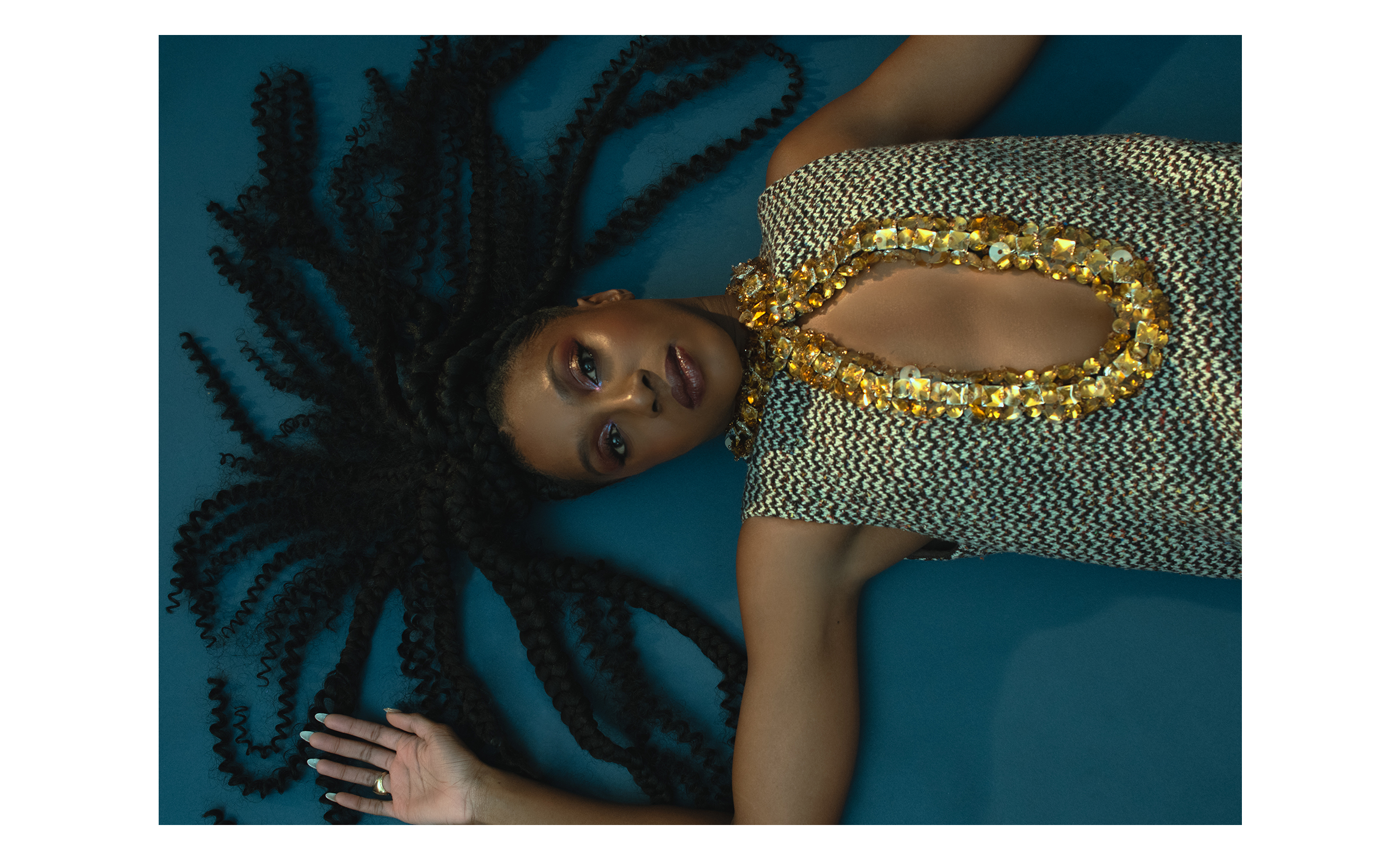
I want to talk about your kickers because you have such a sharp precision and a joyous expression of these killer closing lines. As someone who has seen … in 20 years of being a journalist a lot of leads and a lot of kickers over time in all various forms of work, they are some of the hardest things to write and to really nail. You are just an assassin at it. … What is your process?
Oh, thank you. I was recording my audiobook, and my director, whose name was Eunice… At the end of every essay, she would say, "Hey, slow down and really let this land because it's so good." And I'd be like, "Well, da, da, da—let's get through this book." So this is news to me. Thank you. If you're asking me about process, it really comes down to what is this essay about. You're always trying to land the plane, especially when you're doing standup. When you're doing comedy, it's like, "What's the point of this bit? How are we going to get out of the story and have the audience laugh so they don't think I was just going on this weird, dark tangent onstage?" Standup probably teaches you—and this is me realizing this in real time—that you need a coda. You need to tie it up in a bow. That's why they end in such a strong way. What's the point? Why did you tell this story? Otherwise, the story shouldn't be in this book. I approach each essay like that.
How do you know when an essay is complete or a piece is complete?
When I read it and I don't hate it anymore is when I know that it's done. Usually, I'll read something—I've read my book a hundred times—and it haunts me. I'll read it, and I'll be happy with it, or I'll look at it, and I'll be like, "Wow, I freaked that." I get that sensation too when I read my work because I try to entertain myself. I really will be like, "Wow, you went off on this one, Ziwe." And then I'll send it to the writers in my life that are really good, and I'll get their notes. Sometimes, things make sense to you, but they're not clear to people who have no idea what you're talking about. And then I'll adjust. But you have a sense of when it's good. I wrote about this in my book, but the first thing you have as an artist is taste. I have the taste to understand "Oh, I like this. I hate this. This is why I like this." As you grow as an artist, you realize how to align your high levels of taste with artistry because you're writing and writing, and you're like, "This is terrible," and it's really terrible for a very long time until eventually you hope that they are on the same plane and your taste in your writing. Your writing impresses your taste.
I was just thinking about the style equivalent of that, of when you have taste for the finest things but not necessarily the cash for it. How do you bridge that gap until hopefully someday you might? And it feels a little bit similar.
Exactly. You might go digging in a thrift store, and you're like, "I have this taste." I know this taste, and you find this $9 Off-White overall, and you're like, "Who would ever put this in a thrift store?" And then you're like, "Well, this is mine because I have taste, and I know how great it is." But it's about putting in the hours. That's really hard, but…
You can find the gem.
The reward is that you get really good pieces, and you're like, "Wow, my mind was in the right place at the right time and freaked it."
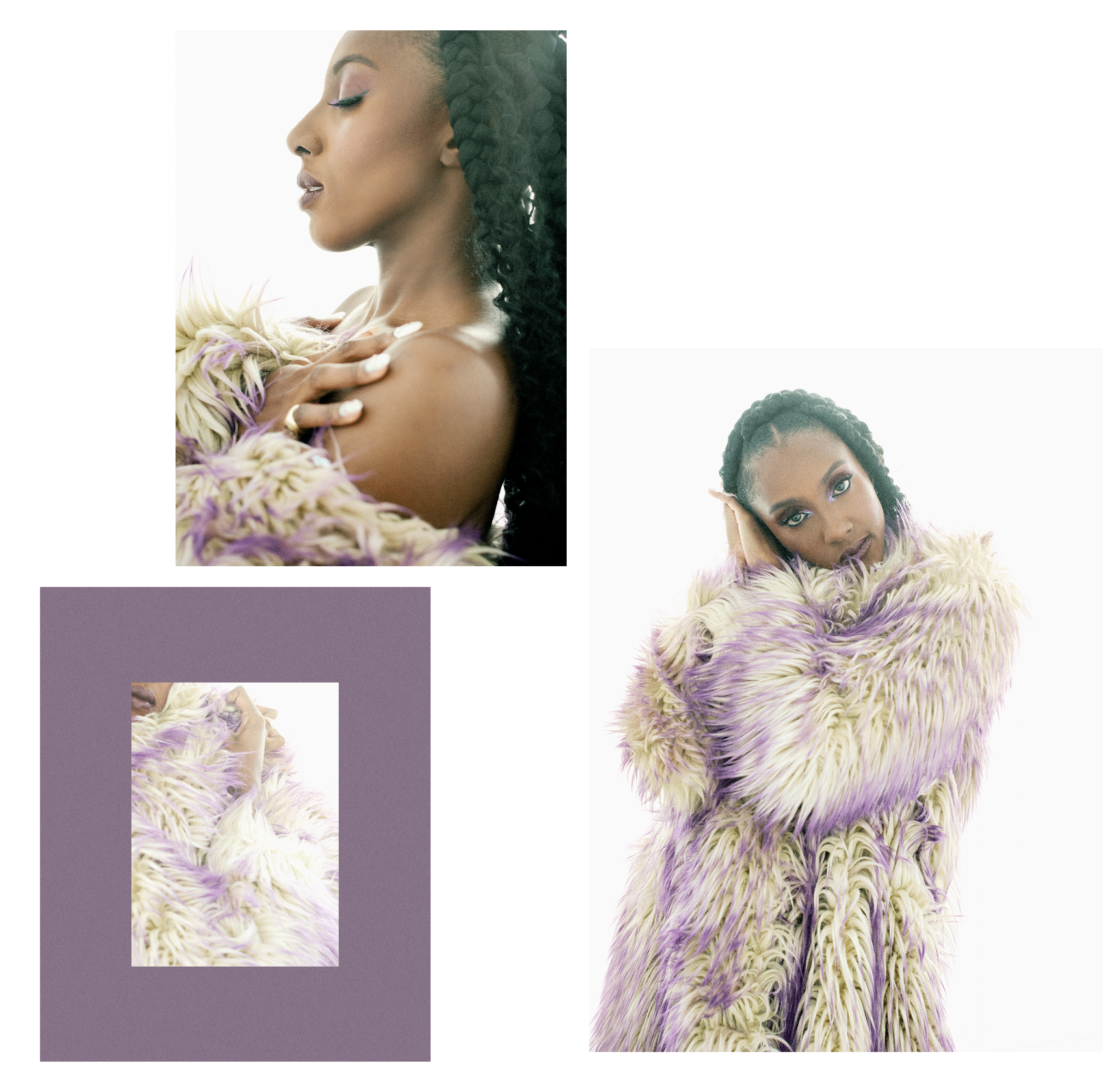
Let's talk about footnotes. By the way, I love footnotes as a concept. I love footnotes as a tool. I love footnotes stylistically. I'm a Virgo and a nerd, so of course, they speak to my joy, but talk to me about your relationship to footnotes because they are such a critical part of this book.
Interestingly enough, I'm a Pisces, and Virgos and Pisces are sort of antithetical to each other. I feel that I have organization, but to a Virgo, it seems like chaos. I think footnotes have the same application, in that I wish I could say it was the organization of thoughts, but really, it's that every single road that I created in this city has a side street and an alley and then a sewer. That's just the way that my mind works. It's not linear. I wish that it was so that I could find peace. I would constantly have these interjections that I believed in my heart of hearts were essential to essays, but then in the body of the essays, they would totally disrupt the flow. It's like, "How do you not talk about Miss Claudette when you're talking about Rosa Parks?" The footnotes were this reprieve where I could include essays that were too short for the full book, or they were half ideas or footnotes that were historically important but not necessarily rhetorically important in the literal body of the text in a way that did them justice. … If you don't care, you could read the essay start to finish and not have anything disrupted, but the footnotes are important to my own logic.
To me, it's such a thoughtful way of presenting information and ideas because you are giving a "choose your own adventure" aspect to the reading process. What are you in the mood for? How deep do you want to go? It actually feels quite generous of you.
I used to read encyclopedias as a kid, the Britannica, front to back, and I would retain that information, and it's all these fun facts. That's where I come from as a reader—just being like, "What fun facts can I share at a dinner party?"
I sometimes think about the youngs coming up in this day and age and not having the physical encyclopedia in their house, and I think they're really missing out in one area. Yes, they have all of the information in the world on their phone, but there's something about an old-school encyclopedia.
One-hundred percent. Also, I grew up with dial-up internet. You'd get a phone call, and you'd be like, "Nooooo!" You'd have to start Dexter's Lab game all over again. It was so boring. I don't remember how we entertained ourselves if not for having those old-school history books, encyclopedias, and finding things. Just finding things and the why.
Do you have a favorite essay? Does it change?
I don't have a favorite essay. They're so different. It's like picking a favorite child. Everyone has one, but they wouldn't say. It depends more on the mood. I'm more surprised when individuals talk to me about what essays they specifically connected with. That, to me, is actually more exciting. When I did a podcast with Dua Lipa, she was the first person to ever talk to me about my book, and she really connected with the "WikiFeet" essay. That was surprising to me. I guess it makes total sense. You also have one, wow. When I was talking to my friend Chris Murphy at Vanity Fair, he really connected to the affirmative action essay. He went to Princeton and boarding school as well, so we could connect in that space of our lives, and we've been friends for years. But it was just really fascinating to see what friends, new and old, what really touched them.
While you might not have a favorite per se, is there one that you enjoy reading out loud more than others?
"WikiFeet" is the essay that I performed live for years and then wrote it in my book and continued. I did a speech at Harvard Law School, and I read that essay. It was wild. I love HLS. I love ivy—you know, ivy towers.
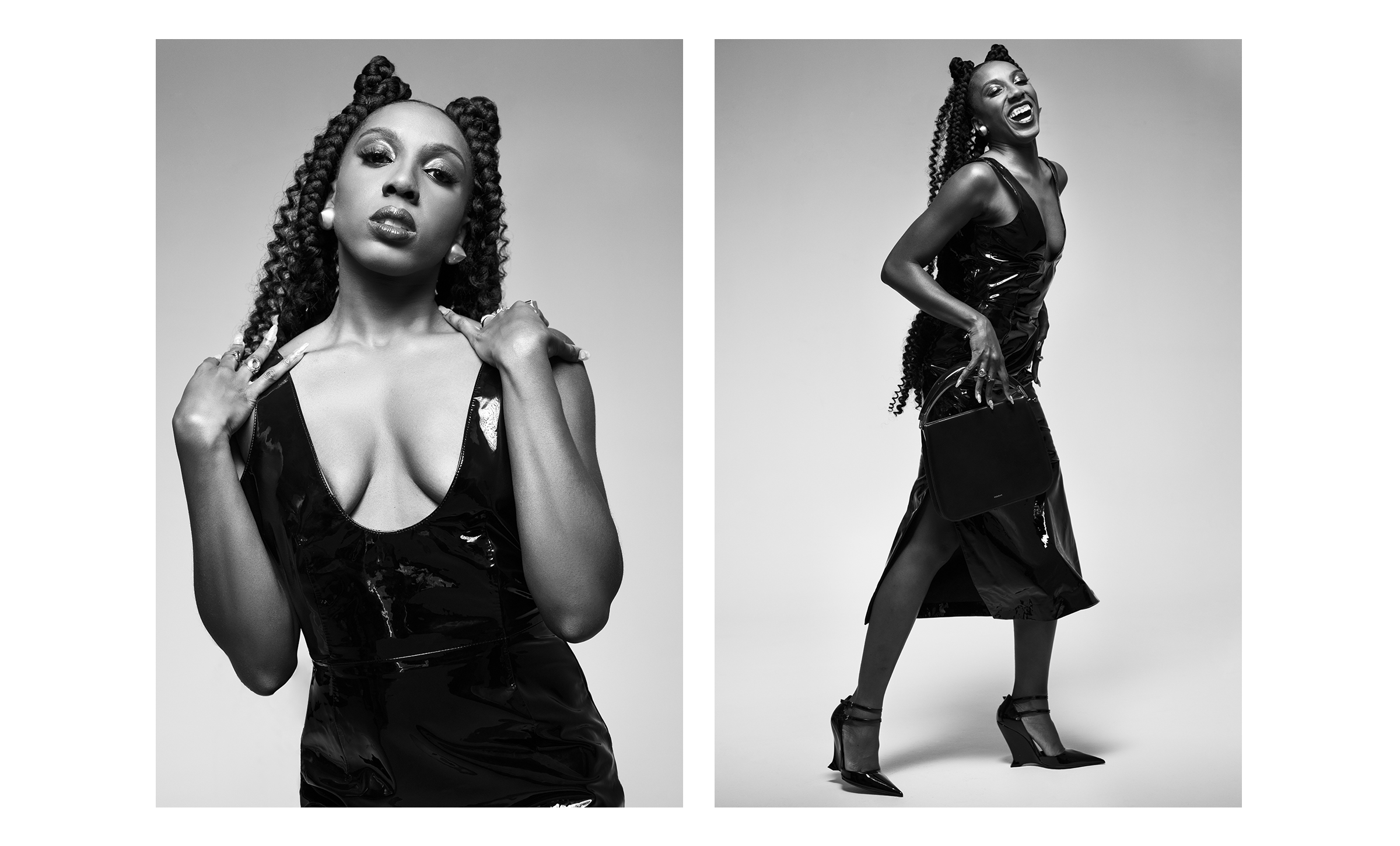
What a moment. It's just so wild to think of the trajectory of that story and that essay and where it started and where it is now and where it will be.
I have a part two in the works, honestly, because my score has been upgraded. Thank you to my loyal audience members. I had to add an addendum about what it means that my score has now risen. The comments on that score are like, "It seems like she's getting a lot of five stars despite having no photos of feet on here. This is a setup. This is a scam." I'm just going deeper into the WikiFeet world, and I will address that in my next book. But for now, we're here.
I found so much personal inspiration in this book. I was schooled in history. There were things that I had forgotten about. There were things that made me more curious. I was also touched by the advice that you offer to young artists who are finding their voices. For these essays, are you writing for yourself? Are you writing for other people? Does it change depending on the essay? What do you want people to take away?
I'm absolutely writing for myself. What do I want people to take away? What they want. I think that there is a lot of laughter if that's your [thing], and there's some great advice if that is your vibe as well. And then there's just stories of my American life. I'm complex enough as a Pisces that any one of my multiple personalities hopefully hits onto an audience. But yeah, I have to write for myself because of how I came up as a comedian and writer. I got horrible advice about how I should be more like other people, and I absolutely flopped. When I really started to hit my stride was when I appreciated the advice that you get as a kid, which is to be yourself. That is how I create—to make myself laugh. If it makes me laugh, well, that's all I can control.
Right, because as you said, that's art. You put it out, and it's not yours anymore.
I have to have the same approach to this experience if the book flops. If it gets critically panned and doesn't make the best seller list versus if it's beloved and does make the best seller list, I have to be able to put the book on the table and be happy with the journey that I had.
Get your copy of Black Friend: Essays today.
Photographer: Austin Sandhaus
Stylist: Calvy Click
Hairstylist: Dhairius Thomas
Makeup Artist: Camille Thompson
Manicurist: Aja Walton
Creative Director: Amy Armani
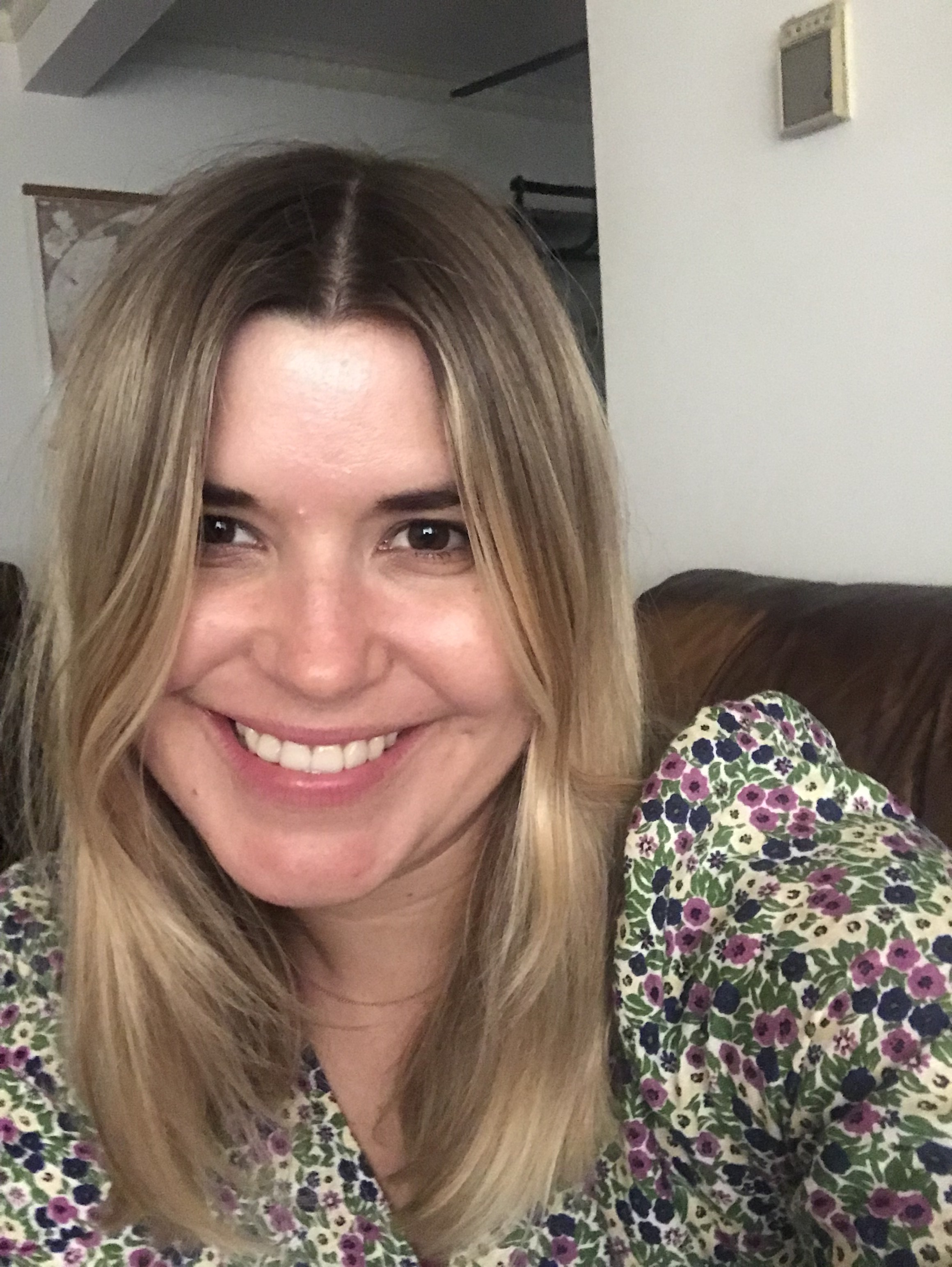
Jessica Baker has 16 years of experience in the digital editorial fashion and entertainment space. She is currently the Executive Director, Entertainment at Who What Wear where she ideates, books, writes, and edits celebrity and entertainment features.
-
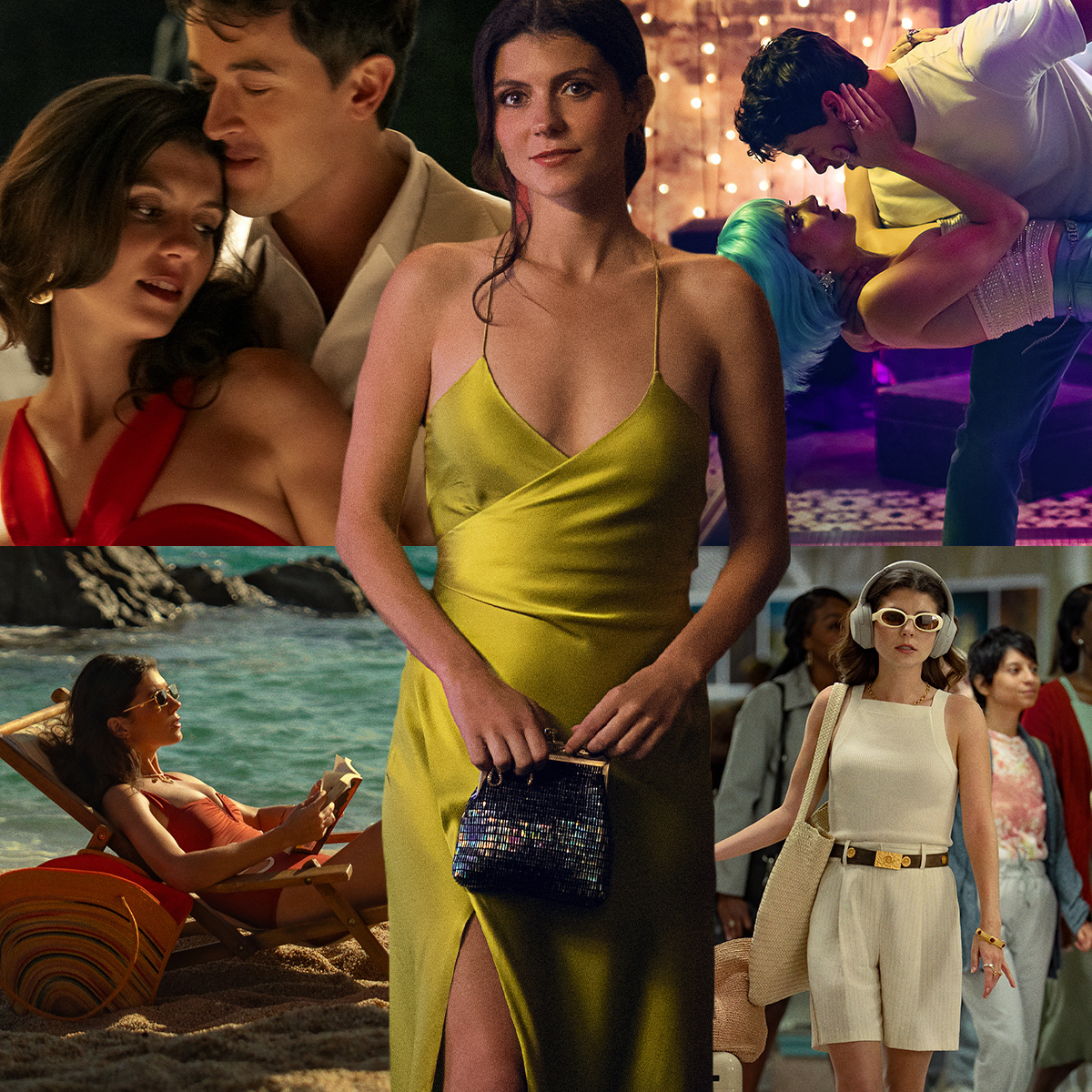 A Lesson in Carefree Style From the People We Meet on Vacation Costume Designer
A Lesson in Carefree Style From the People We Meet on Vacation Costume DesignerIt's time to plan your next stylish getaway.
-
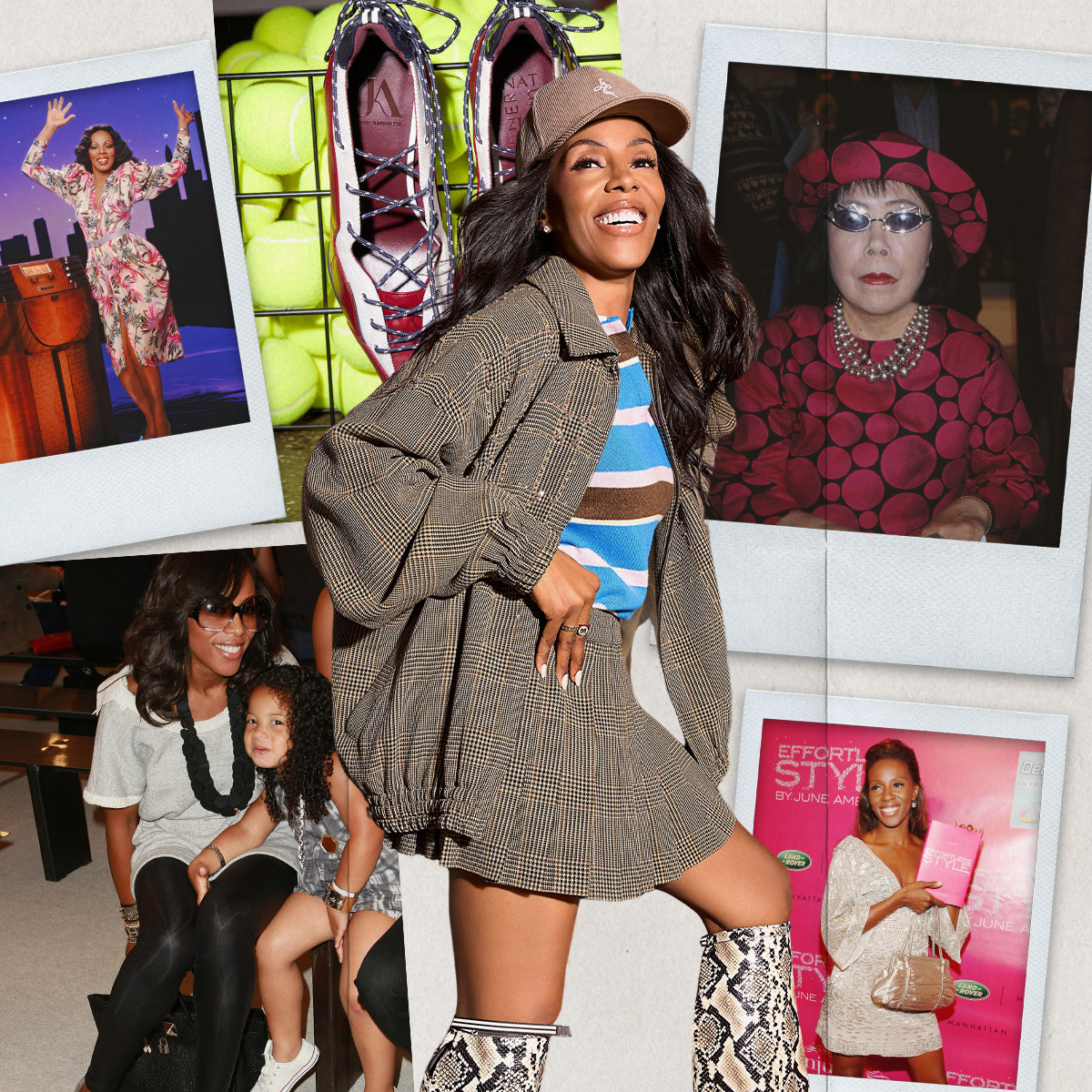 June Ambrose's World: Her Fearless Style, Her Defining Career Moments, and the Lessons She's Passing Down to Her Daughter
June Ambrose's World: Her Fearless Style, Her Defining Career Moments, and the Lessons She's Passing Down to Her DaughterPlus, she spilled the one award-winning artist she listens to on repeat.
-
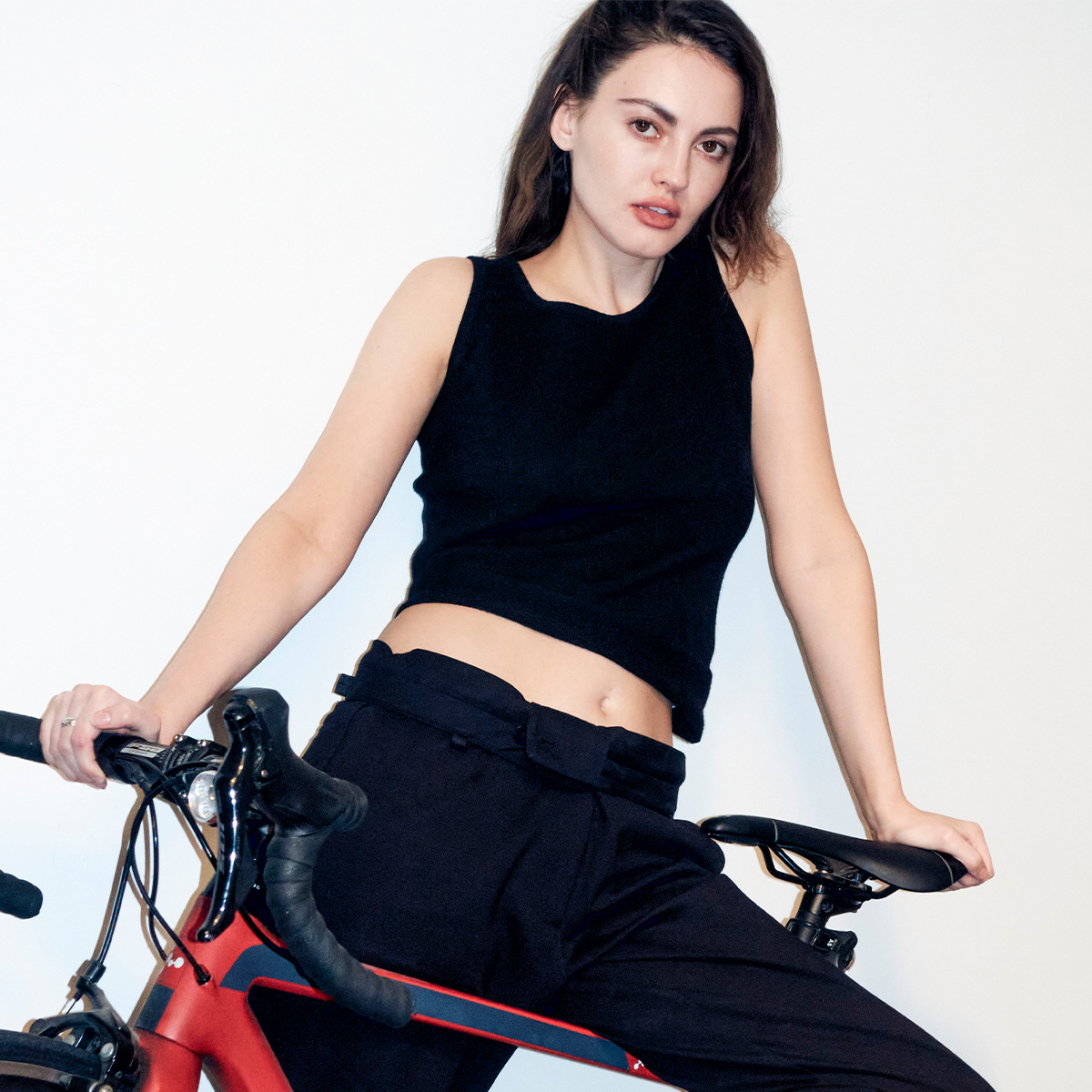 The Moment's Trew Mullen Is About to Have Her Own Moment
The Moment's Trew Mullen Is About to Have Her Own MomentMeet the breakout star of the film everyone is talking about.
-
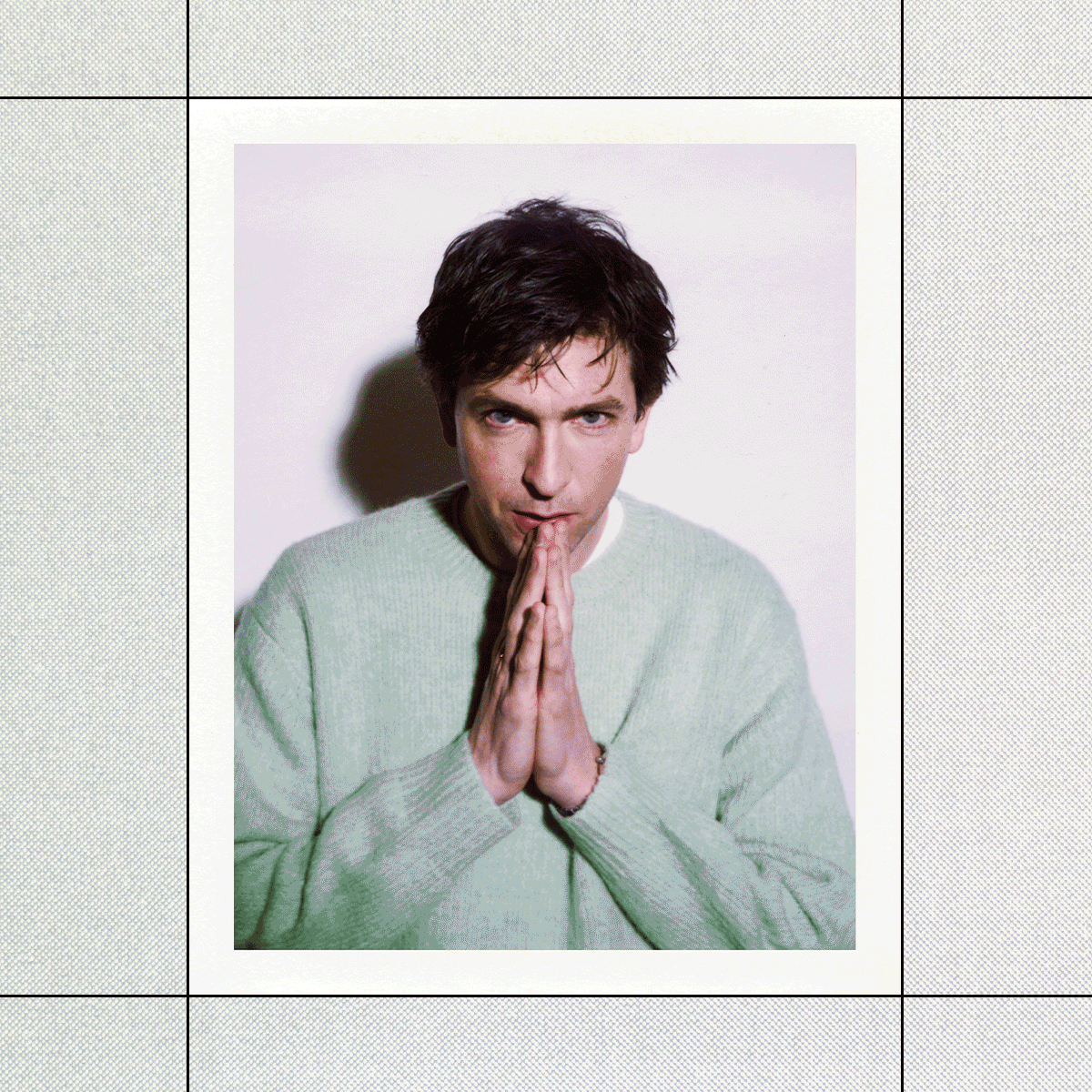 Reporting From Sundance: The Buzzy Talent and Films to Have on Your Radar This Year
Reporting From Sundance: The Buzzy Talent and Films to Have on Your Radar This YearComing to you from our Park City photo studio with Free People.
-
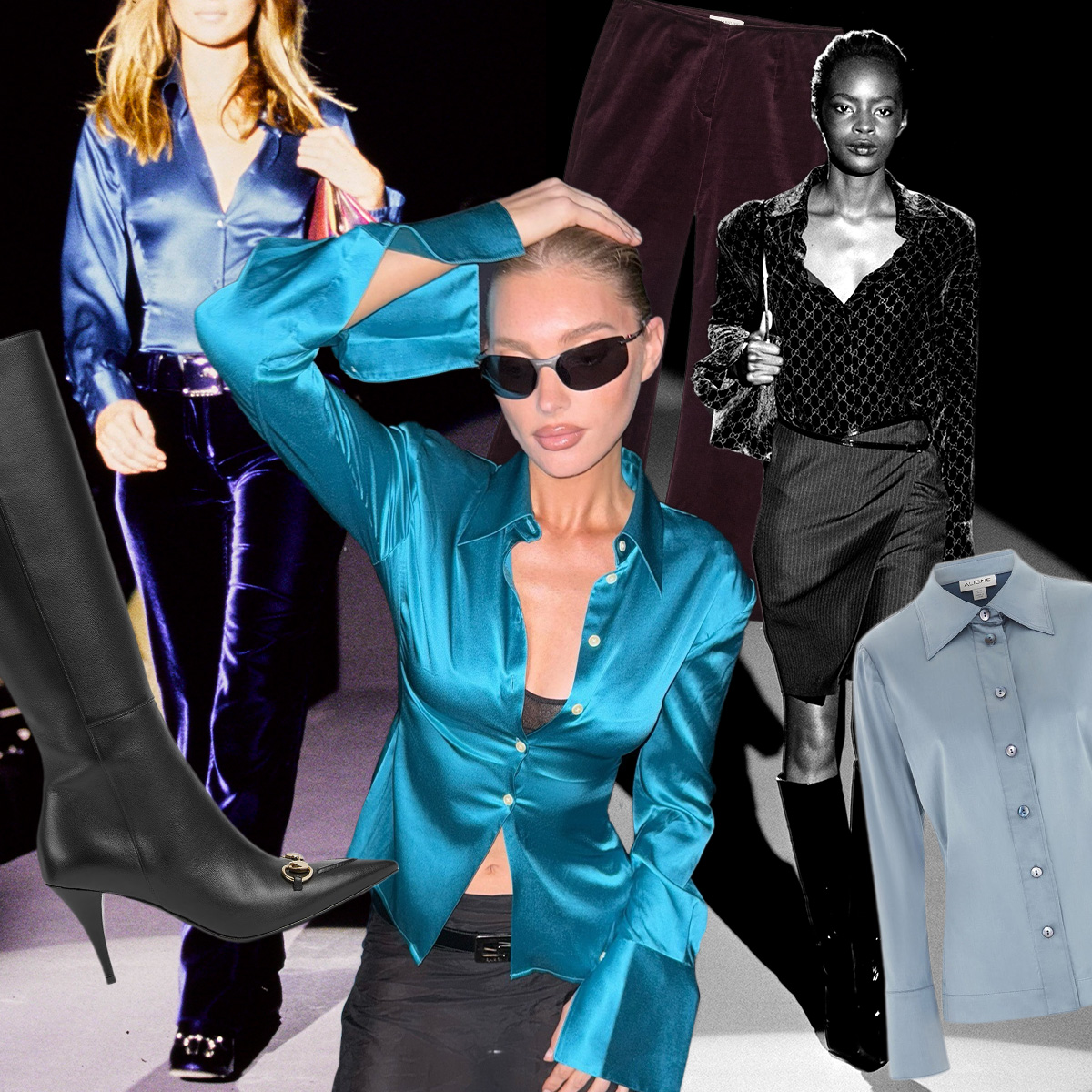 Every 2026 Trend We Have Tom Ford's Gucci Era to Thank For
Every 2026 Trend We Have Tom Ford's Gucci Era to Thank ForFrom silk blouses to pencil skirts.
-
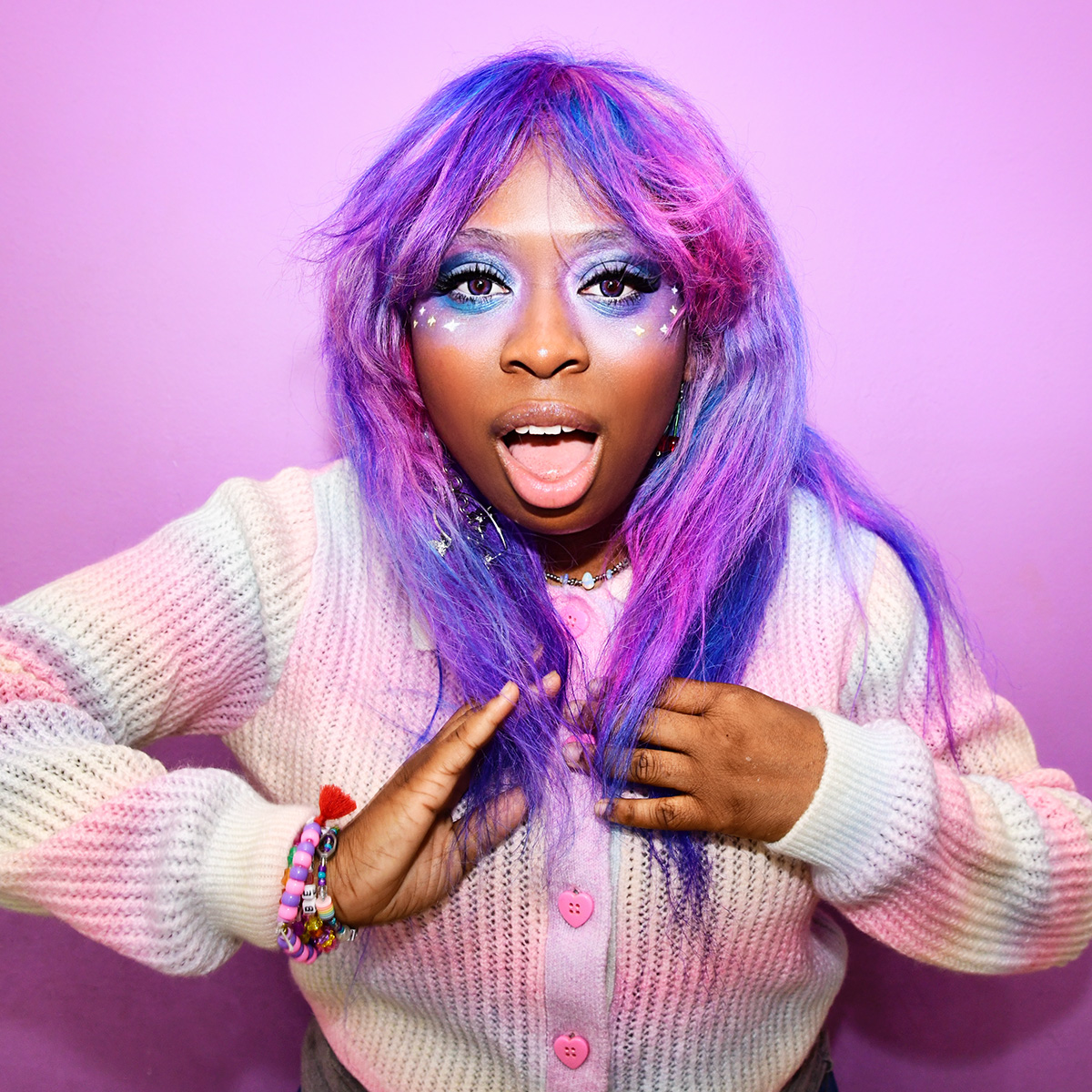 Art Pop Princess Hemlocke Springs Is Your Next Music Obsession
Art Pop Princess Hemlocke Springs Is Your Next Music ObsessionAhead of the release of her debut album, meet the artist who has Doechii and Chappell Roan talking.
-
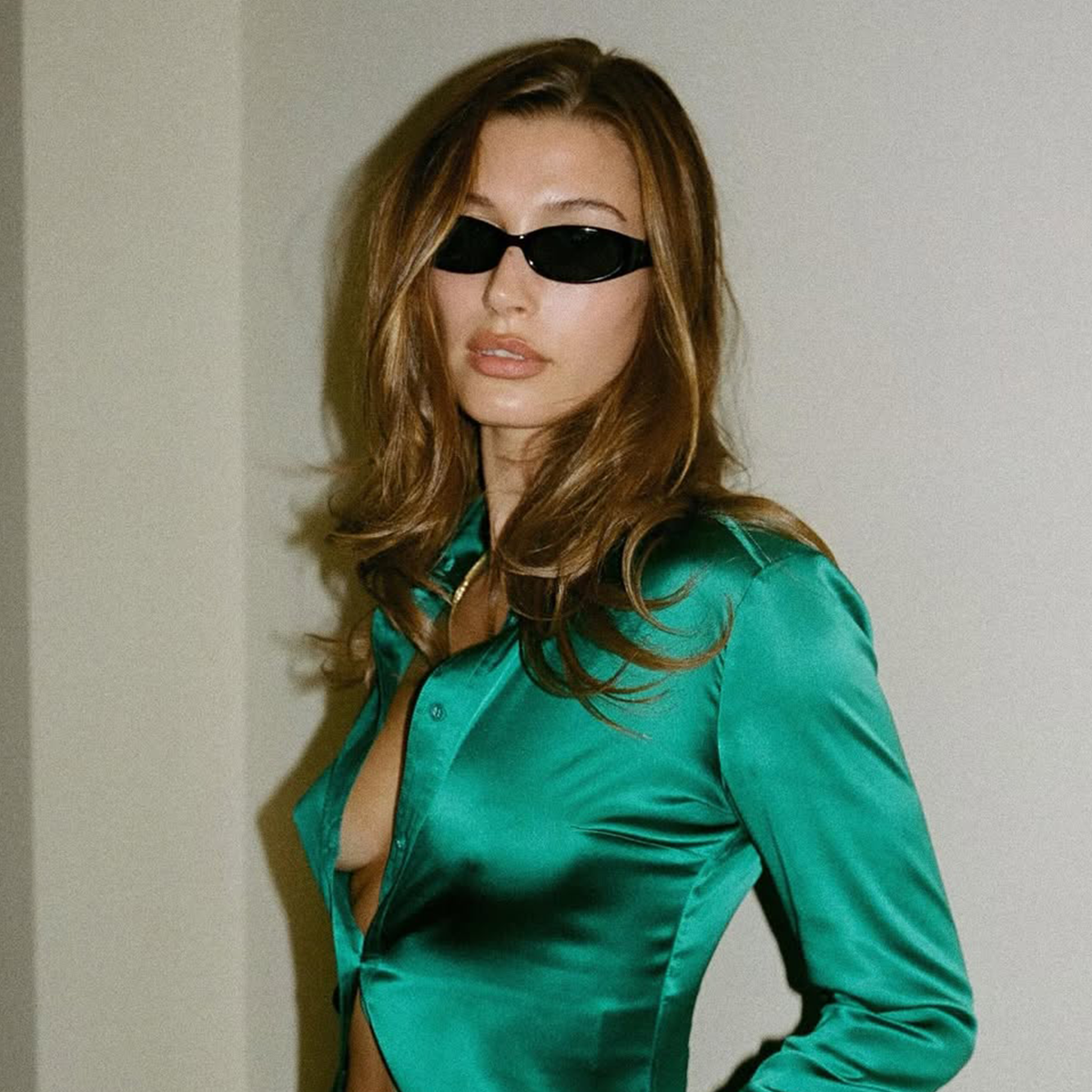 The Elegant Top Fashion People Are Wearing With Jeans and Trousers to Look Rich
The Elegant Top Fashion People Are Wearing With Jeans and Trousers to Look RichInspired by Tom Ford for Gucci, of course.
-
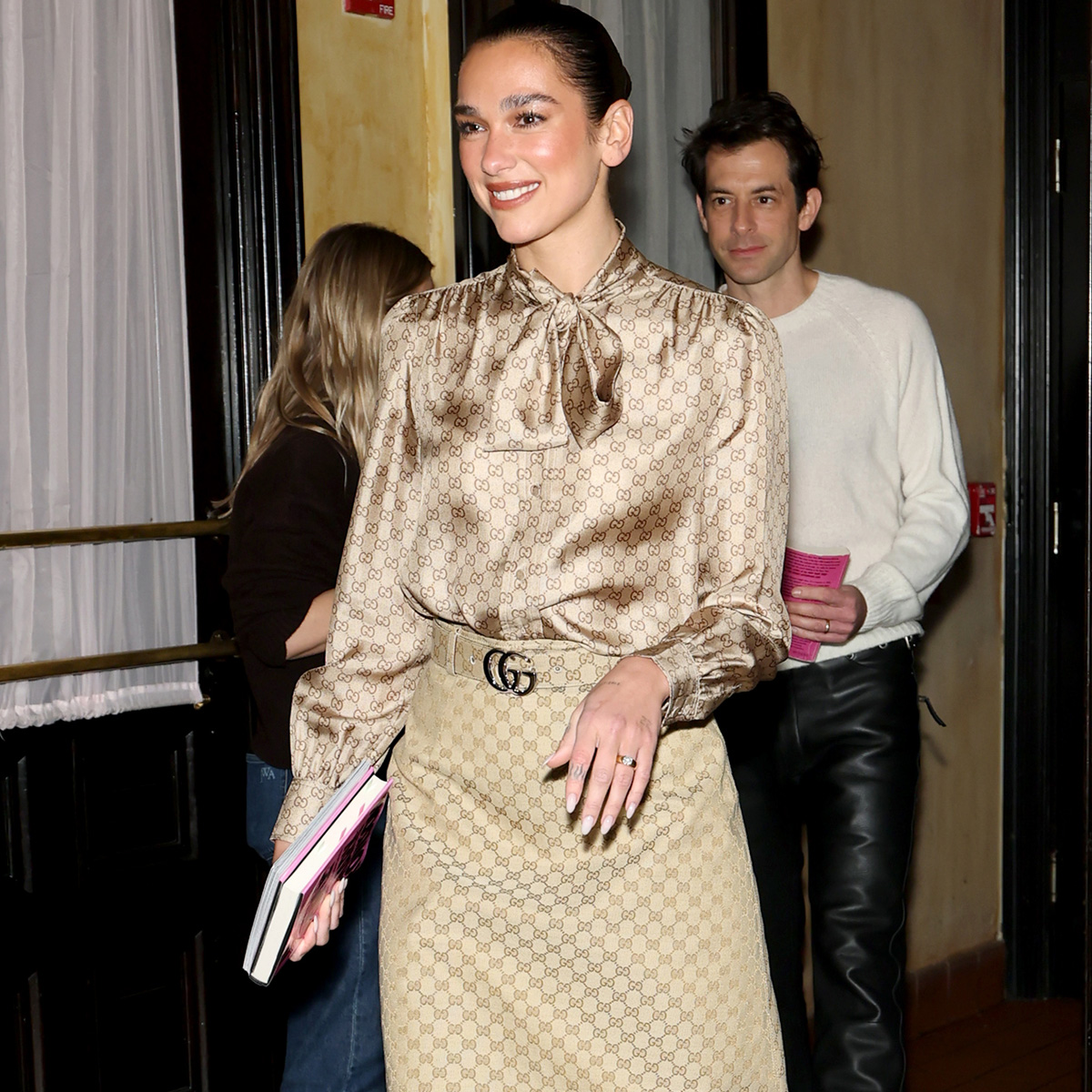 Dua! Kim! Miley! Demna's Debut Collection for Gucci Just Dropped, and A-List Celebrities Can't Get Enough
Dua! Kim! Miley! Demna's Debut Collection for Gucci Just Dropped, and A-List Celebrities Can't Get EnoughIt's full of drama, glamour, and soul.
